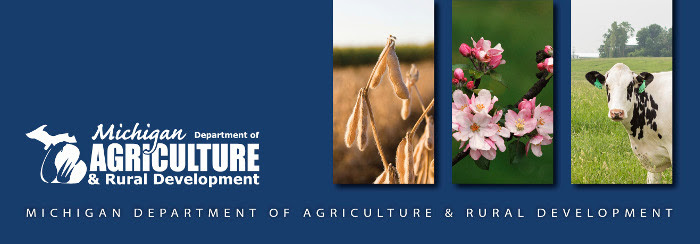 |
| Release Date: June 6, 2022 Program contact: Robin Rosenbaum, 517-490-1301 Media contact: Jennifer Holton, 517-284-5724 MDARD asks public to help prevent spread of invasive pests, protect plant health during national gardening weekLANSING – Summer weather has finally made its appearance, and many Michiganders are stocking up on new plants for their garden or landscape. With people headed to their local greenhouse or nursery, the Michigan Department of Agriculture and Rural Development (MDARD) is asking the public to help be on the lookout for invasive plants, pests, and diseases. When selecting plants and flowers, homeowners and gardeners should keep in mind the impact those plants may have on other plants cultivated around their landscape or garden. Invasive, non-native plants have few or no natural predators in their non-native environments and can quickly spread—disrupting ecosystems by pushing out native species and reducing biological diversity. Invasive plants are not the only problem. Many plants and flowers, including those native to Michigan, can be hosts to invasive plant pests and diseases. These invasives can hitch a ride on plants and be transported to homeowners’ yards and then quickly spread to the surrounding area. Warmer weather can magnify their impact, increasing the level of plant pest infestations and disease infections, allowing pests to produce more generations each year, and extending the suitable habitat for plant pests. “People can unintentionally move pests around the state,” said Robin Rosenbaum, Plant Health Section Manager of MDARD’s Pesticide and Plant Pest Management Division. “Many of the pests we are most concerned about can hide in or on untreated firewood, soil, seeds, and plants. Some pests such as spotted lanternfly can lay eggs on conveyances in an infested region and then be transported into Michigan.” To help combat the spread of invasives pests and diseases, MDARD has implemented several plant pest quarantines. These legal documents issued by the department limit the movement of specific plant material within, into or out of the state of Michigan. The United States Department of Agriculture and other state’s quarantines help combat the movement of invasives such as spongy moth (formerly known as gypsy moth), Asian longhorned beetle and others. MDARD’s plant heath inspectors work throughout the summer months inspecting plant material and ensuring compliance with state and federal quarantines. “Quarantines are a useful tool to control the spread of invasives, but we need help from the public to stop the spread of pests we’re most concerned about,” added Rosenbaum. Michiganders interested in buying plant material online should also be aware that many websites and social media groups lack adequate information about state and federal quarantines and concerns about pest movement.is. Buying locally from an MDARD-licensed nursery is a great way to minimize risk as these firms are inspected annually and are aware of Michigan-specific laws, regulations, and pests. Here are some simple steps you should take to help limit the spread of invasive species:
For additional information about MDARD’s Pesticide and Plant Pest Management Division, visit www.michigan.gov/mdard/plant- |

